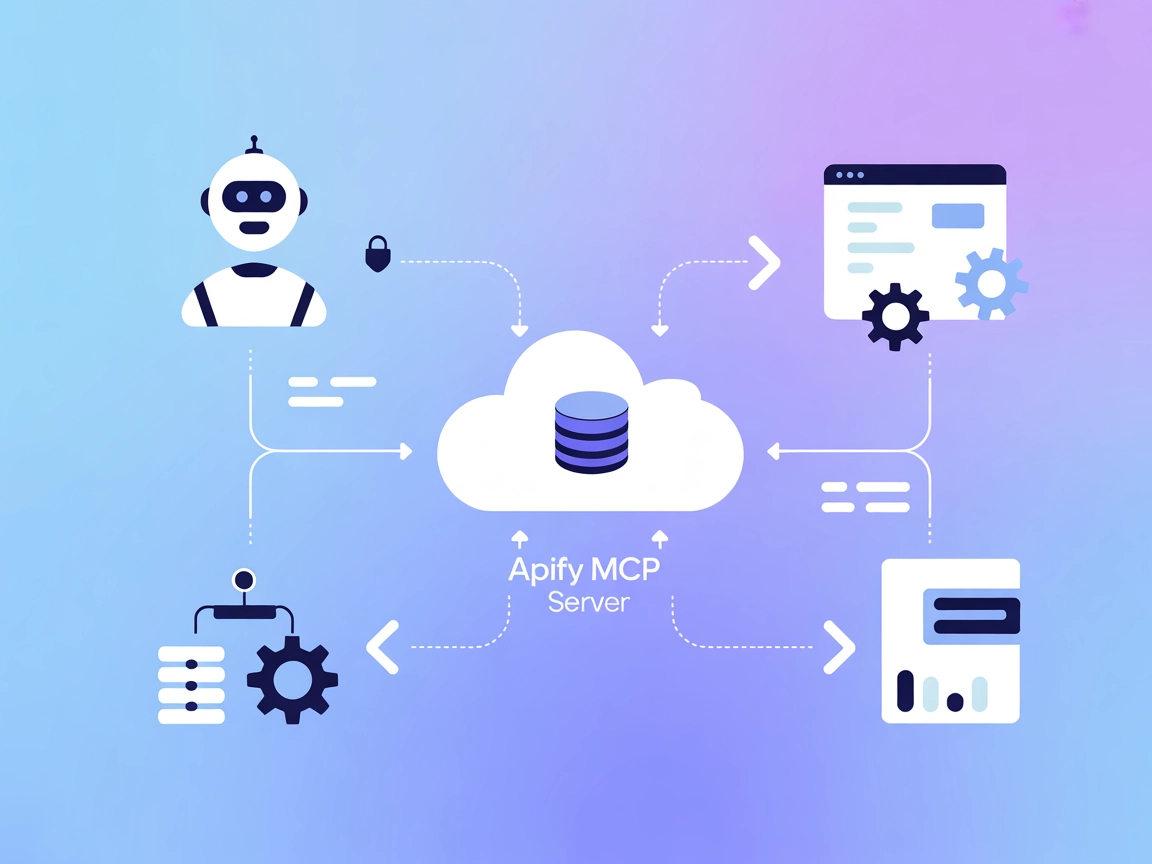
Apify MCP Server Integration
The Apify MCP Server connects AI assistants with the Apify platform, enabling seamless automation, data extraction, and workflow orchestration via standardized ...

Integrate Shopify store data with FlowHunt and your AI tools for advanced product, customer, and order automation using the Shopify MCP Server.
FlowHunt provides an additional security layer between your internal systems and AI tools, giving you granular control over which tools are accessible from your MCP servers. MCP servers hosted in our infrastructure can be seamlessly integrated with FlowHunt's chatbot as well as popular AI platforms like ChatGPT, Claude, and various AI editors.
The Shopify MCP (Model Context Protocol) Server is a specialized bridge that connects AI assistants with the Shopify API, enabling seamless access to Shopify store data. It allows developers and AI-powered tools to perform advanced tasks such as querying products, managing customers, and handling orders directly through standardized MCP interfaces. By integrating with platforms like Claude and Cursor, the Shopify MCP server streamlines e-commerce development workflows, automates routine store management, and supports direct interaction with the Shopify GraphQL Admin API. This results in enhanced productivity for developers and more powerful, context-aware AI assistants for merchants and technical teams.
No specific prompt templates are listed in the repository.
No explicit resources are described in the available documentation.
searchTitle and a limit for the number of products returned.searchQuery and limit parameters.No specific setup instructions for Windsurf are provided.
~/Library/Application Support/Claude/claude_desktop_config.json%APPDATA%/Claude/claude_desktop_config.jsonclaude_desktop_config.json:{
"mcpServers": {
"shopify": {
"command": "npx",
"args": [
"shopify-mcp",
"--accessToken",
"<YOUR_ACCESS_TOKEN>",
"--domain",
"<YOUR_SHOP>.myshopify.com"
]
}
}
}
SHOPIFY_ACCESS_TOKEN=your_access_token
MYSHOPIFY_DOMAIN=your-store.myshopify.com
Alternatively, run the server with:
npx shopify-mcp
No specific setup instructions for Cursor are provided.
No specific setup instructions for Cline are provided.
Using MCP in FlowHunt
To integrate MCP servers into your FlowHunt workflow, start by adding the MCP component to your flow and connecting it to your AI agent:

Click on the MCP component to open the configuration panel. In the system MCP configuration section, insert your MCP server details using this JSON format:
{
"shopify": {
"transport": "streamable_http",
"url": "https://yourmcpserver.example/pathtothemcp/url"
}
}
Once configured, the AI agent is now able to use this MCP as a tool with access to all its functions and capabilities. Remember to change “shopify” to whatever the actual name of your MCP server is and replace the URL with your own MCP server URL.
| Section | Availability | Details/Notes |
|---|---|---|
| Overview | ✅ | |
| List of Prompts | ⛔ | No prompt templates found |
| List of Resources | ⛔ | No explicit MCP resources listed |
| List of Tools | ✅ | get-products, get-product-by-id, get-customers, update-customer |
| Securing API Keys | ✅ | Environment variable and command-line options detailed |
| Sampling Support (less important in evaluation) | ⛔ | Not mentioned |
The Shopify MCP server provides clear and robust tooling for Shopify API integration and is transparent about setup and security. However, it lacks detailed prompt templates and explicit resource listings, and doesn’t document sampling or roots support.
Rating: 6/10 — Very practical for e-commerce/Shopify use cases, but limited documentation on advanced MCP features and resources.
| Has a LICENSE | ✅ (MIT) |
|---|---|
| Has at least one tool | ✅ |
| Number of Forks | 14 |
| Number of Stars | 52 |
The Shopify MCP Server is a bridge that connects AI assistants and developer tools with Shopify stores via the Shopify API. It enables automated e-commerce workflows, product management, customer data handling, and order operations directly inside FlowHunt or integrated AI platforms.
It offers tools for retrieving and searching products, fetching product details by ID, managing and searching customers, and updating customer information. These tools help automate catalog management, customer engagement, and order processing.
You should use environment variables to store sensitive information such as your Shopify access token and domain. This prevents accidental exposure of credentials in code or configuration files.
Popular use cases include automating inventory checks, updating customer tags, handling order analytics, and integrating AI-driven support or insight workflows for merchants and technical teams.
No specific prompt templates or explicit additional resources are listed in the available documentation for this MCP server.
Supercharge your e-commerce automation and AI workflows. Try FlowHunt’s Shopify MCP Server integration for unified access to store data, customer insights, and automated operations.

The Apify MCP Server connects AI assistants with the Apify platform, enabling seamless automation, data extraction, and workflow orchestration via standardized ...

The Dify MCP Server bridges AI assistants with Dify workflows, enabling programmatic workflow orchestration, API integration, and external service connections t...

The Model Context Protocol (MCP) Server bridges AI assistants with external data sources, APIs, and services, enabling streamlined integration of complex workfl...
Cookie Consent
We use cookies to enhance your browsing experience and analyze our traffic. See our privacy policy.